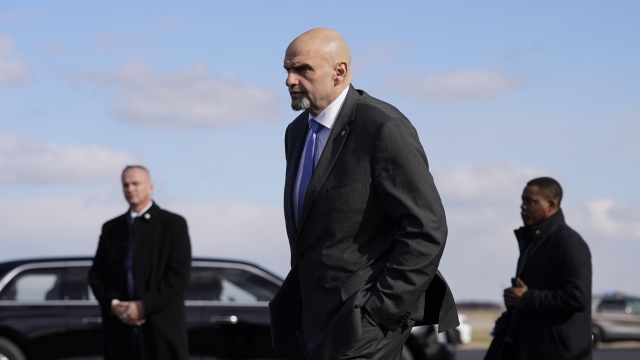Senator John Fetterman’s candid approach to his struggles with mental health is unusual on Capitol Hill, where issues with members’ health are frequently kept hidden from the public.
But Fetterman’s openness has led to praise from mental health advocates, fellow members of Congress, and President Joe Biden, who said in a tweet, "We’re grateful to you for leading by example."
Such mental health struggles in politics are not new — but they’re not mentioned often.
In 1972, U.S. Sen. Thomas Eagleton was forced to bow out as the vice presidential pick for Democratic nominee George McGovern after his mental health struggles became public.
And in 2007, then-Congressman Patrick Kennedy opened up on Larry King live about his struggles with mental health.
After a late-night car crash on Capitol Hill, the Rhode Island Democrat pled guilty in 2006 to charges of driving under the influence of prescription drugs.
Since departing Congress, he founded the Kennedy Forum, which he describes as a think tank focused on mental health and addiction policy.
"I think Senator Fetterman, simply by checking himself in saying he needs help and going to get that help, is going to probably help more people in that single act than any other bill that he sponsors or acts that he passes in Congress this year for sure," Kennedy said last week. "When I did go to treatment, I went under the cover of darkness, I did not do what Senator Fetterman has done, and that is to be very public about going to treatment. When I did go publicly, it was because I was forced to go publicly, I had had a DWI."
Fetterman suffered a stroke during his Senate campaign last year. His office said he has experienced depression on and off throughout his life but it became more severe recently.
Mental health experts say his transparency about his struggles is an important signal to those dealing with similar issues. They say depression following a stroke isn’t unusual.
"We know that up to a third of people who have a stroke will suffer depression is the most common psychiatric disorder in people who have had a stroke. So I think for him to be so public about it is so courageous and he's been courageous up until this point, and he continues to do so," said Dr. Daniel Bober, a psychiatrist.


